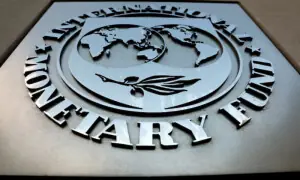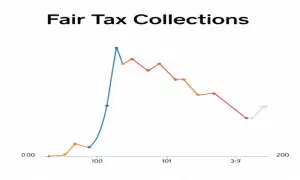Out with the fake, please
4 min readWe devour news everyday and it feeds our constant need for information. We make important decisions based on information. We form an idea about people or a situation by obtaining information. So if the information we get on digital or other space is fabricated, false, exaggerated or distorted, chances are our judgment will be clouded.
Fake news is information that is fabricated and packaged to appear as fact. Unlike other forms of humour, fake news attempts to deliberately mislead its audience with the goal of any political, financial or social gain. Often attention grabbing headlines are used to attract the audience. It is also a form of propaganda that is widespread today.
In today’s digital age,the intricately connected world has profoundly developed the ideology of believing and testing everything peoplesee on the internet. Clickbait, satire and conspiracies get into their minds and these deceptively packaged falsehoods are sold as legitimate.
A review led by MIT documented how fake news is 70% more likely to be retweeted because of its controversial nature. When cybercrime groups employ such strategies to undermine worldwide government issues, the danger can't be underestimated.
It has been seen world over how disinformation campaigns during elections have attempted to sabotage the voters' ability to make their decisions independently due to their convictions about political systems. This implies a risk for the quality and authenticity of the democratic process, as a well-informed voter is fundamental for the collective independence of democratic systems.
A growing body of research suggests that women in politics are subjected to more controversies and scandals through gendered disinformation. Fake news is built up against gender equality movements to diminish their progress and to control women's voices. Anti-feminist campaigns are round up on social media to undermine the these reformists' efforts.
We have seen the emergence of phenomenon such as gas lighting, victim blaming and attempts to suppress women’s voices. These reformist campaigns are labelled as controversial to diminish progress on gender equality leading to hate crimes and hate speech against a reasonable practice.
Disinformation also harms genuine journalistic efforts because the growing distrust in media leads to audiences pulling away.
During a recent press briefing Federal Minister for Information and Broadcasting, Fawad Chaudhry urged the media to provide solutions to tackle fake news stressing the requirement for robust and comprehensive trainings for journalists and media professionals.
For a long time, the debate has raged on how yellow journalism and sensationalism sells and keeps businesses going but it also corrodes the wellbeing of a country. During my various jobs in the media I was deeply aware of my responsibility -- responsibility to the reader and my own journalistic integrity was always key.
We witnessed all media around the world practicing care in reporting news about coronavirus and perhaps the same spirits is required when reporting on other matters. Things are more complex today and the media war is more aggressive. International fake news targeting Pakistan, with a clear intention and agenda, is also rife, with certain news outlets and journalists in India taking the lead.T he hate that is spewed is often uncalled for and finds no legitimate footing.
Regulations by the state on media, with all their well-intended spirit, needs more support by the stakeholders, especially since the rules will impact them the most. That means sitting at the table while policies are being formulated and creating inclusive dialogues around the proposed laws. There are also growing concerns that regulations such as the most recent one by PTA on social media content makers may be misused.
Time will expose all vulnerabilities of the mechanisms and present all irregularities on parts of all invested stakeholders. It is interesting to see that some people share and produce fake news knowingly and some are not aware. However both strengthen the same challenge. Audience and reader’s awareness or rather lack of, about interpreting content is also crucial and the world of mass information does not make things easier for any of us.
Ramma Cheema is a media and advocacy expert and founder of a social impact organisation, Beti. She can be reached at [email protected]
For the latest news, follow us on Twitter @Aaj_Urdu. We are also on Facebook, Instagram and YouTube.


























Comments are closed on this story.